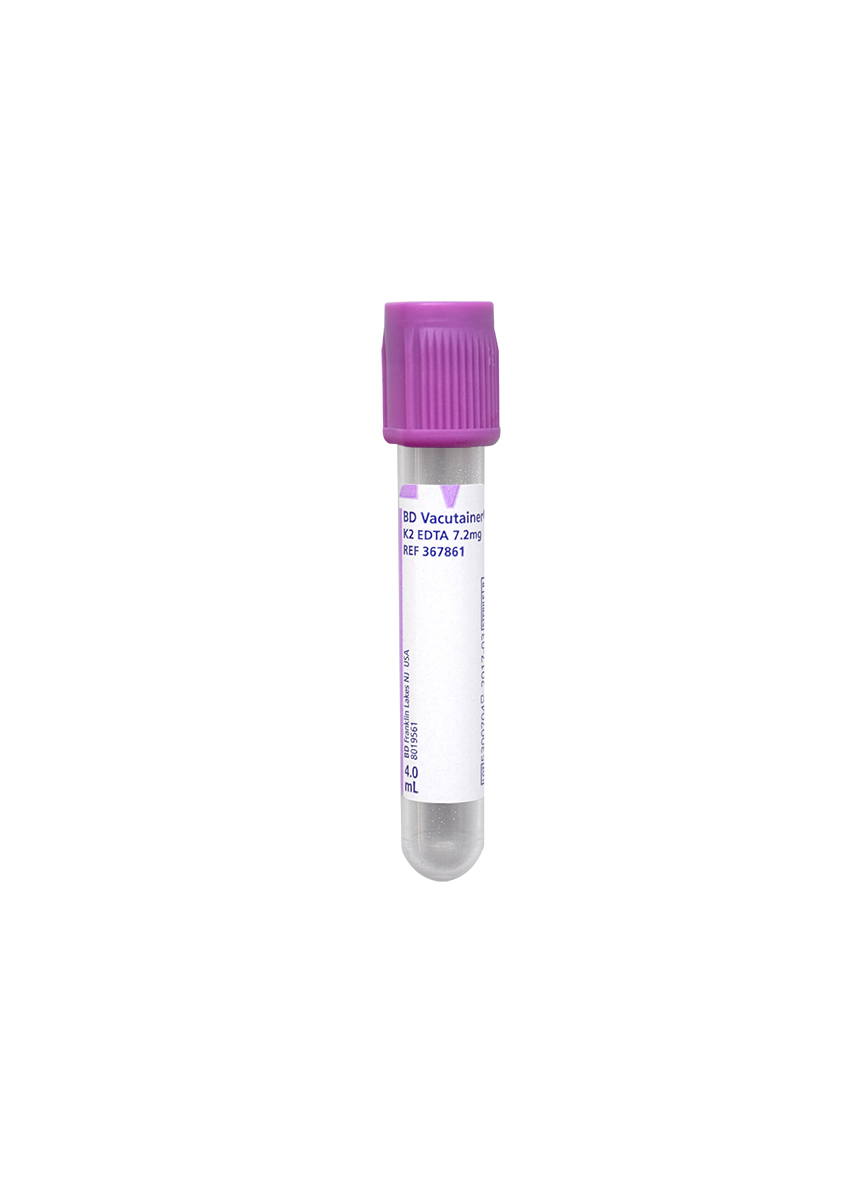Technical Brief
BCR / ABL p210 Quantitative RT-PCR Assay with International Scale Reporting for Minimal Residual Disease in Chronic Myeloid Leukemia
Test Name
BCR / ABL p210 RT-PCR, quantitative (BCRPCR)
CPT Code
81206
G0452
Methodology
Reverse Transcription/Polymerase Chain Reaction (RT/PCR)
Turnaround Time
5 – 7 days
Specimen Requirements
Specimen Type:
Whole blood
Volume:
10 mL
Minimum Volume:
4 mL
Collection Container:
Lavender BD Hemogard™ K2EDTA Tube
Transport Temperature:
Ambient
Alternative Specimen
Specimen Type:
Bone marrow
Volume:
5 mL
Minimum Volume:
2 mL
Collection Container:
Lavender BD Hemogard™ K2EDTA Tube
Transport Temperature:
Ambient
Stability
Ambient:
48 hours
Refrigerated:
7 days
Ambient:
Unacceptable
Reference Range
BCR / ABL p210 transcripts not detected
Additional Information
Background Information
A translocation between chromosomes 9 and 22, resulting in the formation of a BCR / ABL fusion transcript, has long been recognized as a hallmark of chronic myeloid leukemia (CML). Although the breakpoints in BCR and ABL are variable, in >95% of cases of CML, the translocation results in production of the p210 isoform of the fusion protein (e13a2 or e14a2 fusion genes).
Modern therapy for CML, including tyrosine kinase inhibitors, has resulted in effective therapeutic options for CML patients. With this advance in treatment has come the need for effective monitoring for the presence of minimal residual disease (MRD) and the ability to recognize disease progression at an early stage. Techniques such as fluorescence in situ
hybridization (FISH) and metaphase cytogenetics provide valuable information at the time of initial diagnosis of CML and metaphase cytogenetics is helpful for identifying the emergence of additional chromosomal abnormalities, however, neither of these techniques are sufficiently sensitive to monitor MRD.[1],[2] For this reason, a BCR / ABL p210 quantitative real-time reverse transcriptase polymerase chain reaction (qRT-PCR) assay was developed, validated, and implemented in the Department of Molecular Pathology.
To facilitate comparison of quantitative RT-PCR results between laboratories and platforms, International Scale reference materials were established by the World Health Organization.[3] Results of this assay are now reported on the International Scale.
Clinical Indications
Quantitative detection of BCR/ABL p210 transcripts (e13a2 or e14a2) in patients with CML.
Methodology
Assay sensitivity was established using RNA extracted from K562 cultured cells suspended in normal buffy coat. This assay successfully detects p210 BCR / ABL transcripts in RNA extracted from one K562 cell in 100,000 peripheral blood leukocytes from a normal individual.
Interpretation
Results are reported as the percentage ratio of fusion gene transcripts to wild-type ABL transcripts (% BCRABL / ABL).
Results are also converted to the International Scale. A BCRABL / ABL value of 0.1% on the International Scale represents a major molecular response by consensus criteria.
References
1. Hughes T, Deininger M, Hochhaus A et al. Monitoring CML patients responding to treatment with tyrosine kinase inhibitors: review and recommendations for harmonizing current methodology for detecting BCR–ABL transcripts and kinase domain mutations and for expressing results. Blood. 2006;108:28-37.
2. Druker BJ, Guilhot F, O’Brien SG et al. Five-year follow-up of patients receiving imatinib for chronic myelogenous leukemia. N Engl J Med. 2006;355:2408-2417.
3. White HE, Matejschuk P, Rigsby P, et al. Establishment of the first World Health Organization International Genetic Reference Panel for quantification of BCR–ABL mRNA. Blood 2010;116:e111-7.

